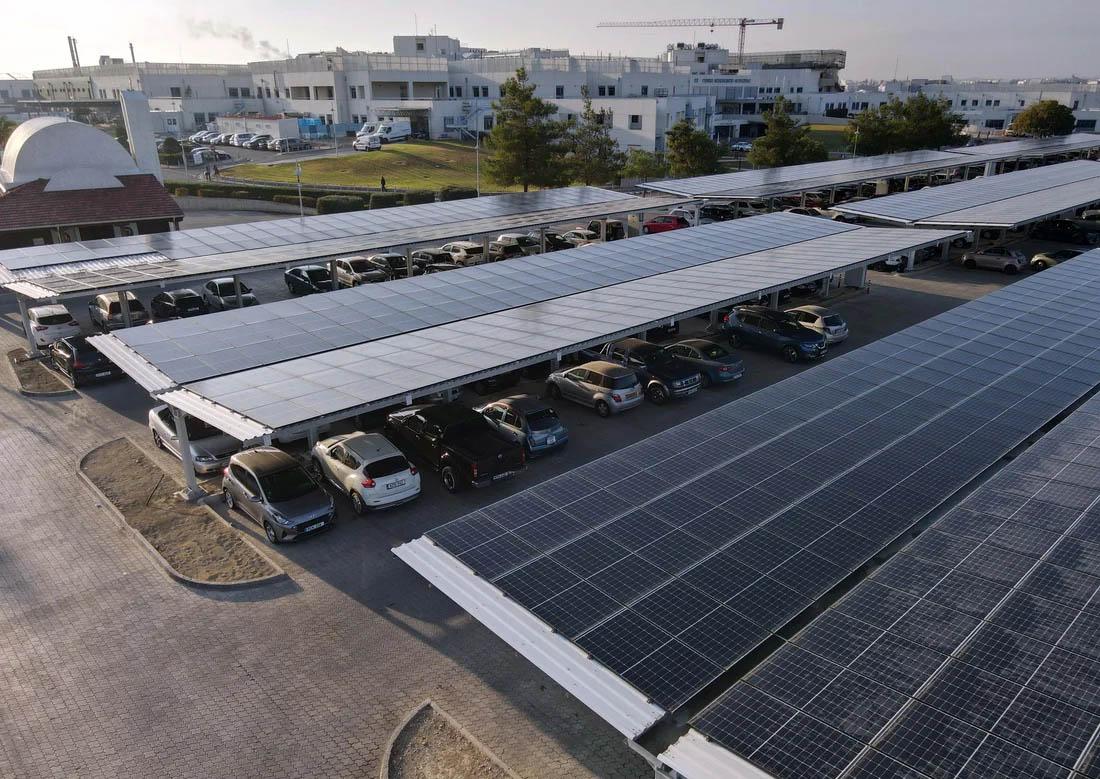A new solar-powered car park will soon be available at the stadium in the Peyia area of Paphos.
This was announced recently by the local municipality.
According to the idea, photovoltaic panels will convert solar energy into electricity. The panels will also be placed in such a way as to provide shade for parked vehicles.
Money for the project is being provided by the Mayor's Office and the EU Recovery and Resilience Fund. The new photovoltaic farm is also designed to meet the stadium's electricity needs.
This is a co-funded project that aims to explore innovative solutions, share best practices and describe concrete strategies for more efficient and sustainable energy management," the city said.

It should be recalled that several technologies are used worldwide to convert solar heat and light into electricity. The most popular are:
- Photovoltaic (PV) devices, such as solar panels, which use semiconductors to convert sunlight directly into electricity.
- Concentrating Solar Power (CSP) plants, which use mirrors to focus sunlight on a central point, generating enough heat to drive steam turbines or engines to generate electricity.
- Solar Heating and Cooling (SHC) systems, which use the sun's thermal energy to heat water and cool the air, replacing the need for electricity or natural gas.
As Cyprus has almost 365 days of sunshine per year, the main solution to the problem of electricity saving is the construction of photovoltaic parks. Unlike burning coal, solar energy does not cause the greenhouse effect that exacerbates global warming. In addition, solar energy can play an important and cost-effective role in overcoming Cyprus' dependence on fossil fuels.
Improved ways of storing solar energy can also increase the sustainability of the energy system. By storing extra energy on sunny days, batteries ensure that electricity is available when the weather is cloudy or when cyclones knock out traditional power lines. As a result, consumers in Cyprus can enjoy more reliable energy at a lower cost. These ambitious investments are not only good climate policy, but also a great opportunity for Cyprus to invest in itself and its future.
